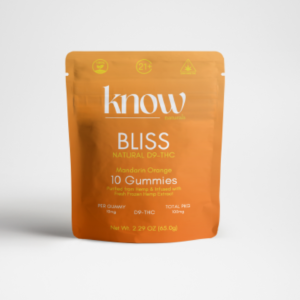The State-by-State Assault on Hemp Continues
Once again, our weekly deep dive has unearthed yet another litany of impending regulations that threaten to cripple the hemp industry, with only smattering of good news between the would-be disasters. Strap in and get ready.
Massachusetts
As of April 3, 2024, the Massachusetts Department of Agricultural Resources (MDAR) has implemented comprehensive regulations affecting hemp processors and business owners within the Commonwealth. Among these, a significant directive is the restriction on the packaging, labeling, and sale of raw hemp plant material—including flowers, whole plants, leaves, and pre-rolled/packaged hemp for smoking—to end consumers, unless sold to a person licensed by the Cannabis Control Commission (CCC) for sale in a marijuana establishment. Additionally, the MDAR has reinforced prohibitions on a variety of hemp-derived products, including foods and animal feed containing CBD or THC derived from hemp, products making therapeutic or medicinal claims, and any product classified as a dietary supplement.
Furthermore, the policy strictly bans the sale of products containing THC concentrations exceeding 0.3%, as well as any synthetically derived THC variants such as Delta-8 THC, THCO, THC10, HHC, THC-o-acetate, and any ingredient deemed by MDAR to be injurious or hazardous to health.
For business owners carrying hemp products, these regulations represent a pivotal shift that will significantly impact operational models and product offerings. Put more simply, this is bad; really f—ing bad. With its draconian measures (close to a total ban), this new set of regulations could put an end to the commercial sale of hemp cannabinoids in Massachusetts as we know it. The constraints on hemp flower and ingestible hemp-derived products will all but eliminate market opportunities and necessitate a deep reassessment of product offerings to ensure compliance with the new state regulations. It is crucial for retailers in the state to thoroughly understand these changes and adapt their practices and product portfolios to align with the new legal framework, both to mitigate losses and prevent potential legal fallout. Equally, if not more important, is the need for retailers within the state to make their voices heard and push for fairer regulations that promote both the cannabis and hemp industries within Massachusetts.
Louisiana
In Louisiana, two pieces of legislation, HB 952 and SB 495, have sparked intense discussion among hemp industry stakeholders. HB 952 seeks to clarify existing regulations around consumable hemp products, specifically addressing beverage and tincture volume limits while banning certain THC homologs. This bill, by delineating clear standards for serving sizes and container volumes, aims to resolve confusion within the industry. Particularly, it caps tinctures at 120ml and mandates that beverages be limited to a single serving size, alongside prohibiting specific THC homologs like THC-P. The clarification provided by HB 952, though more stringent than some operatives would prefer, seems at least an honest attempt at standardizing hemp product offerings, ensuring consumer safety, and maintaining product integrity.
Conversely, SB 495 proposes a complete overhaul on the status quo that could severely alter and restrict the landscape for hemp products in Louisiana. First, there is the protectionist clause, which mandates that all hemp products sold at retail must be distributed by a Consumable Food Manufacturing Distributor (CFMD) licensed within the state—which can’t be obtained without a physical business presence in the state (goodbye, out of state distributors.) The bill goes on to outlaw any THC or CBD in beverages, along with severely limiting THC in any consumable product, meaning that much like Massachusetts, this legislation is an arguable death sentence for the state’s existing hemp industry. If passed, SB 495 will isolate Louisiana’s hemp market from national trends and innovations by favoring in-state distributors and limiting product diversity, while eliminating the in-state players’ ability to develop any products containing CBD or THC. Ultimately this will push the state’s hemp industry back to the prohibition era, when hemp products were little more than beaded necklaces and protein shakes.
These two pieces of contradictory legislation illustrate the uncertain and often contentious regulatory environment surrounding the hemp industry. While HB 952 offers necessary clarifications that could facilitate industry growth and consumer protection, SB 495 threatens to destroy it. By restricting market access and innovation, SB 495 could stifle the hemp industry’s development in Louisiana, hindering local businesses and limiting consumer access to the vast majority of hemp-derived products. Stakeholders are encouraged to actively engage in the legislative process, voicing support for measures that promote clarity and industry growth while opposing those that could impose undue restrictions on the hemp market. For more resources to make your voices heard, visit our allies at the Hemp Roundtable.
Chicago, Illinois
In Chicago, Alderman (i.e., City Councilman) Brian Hopkins has introduced ordinances aiming to regulate the sale of hemp-derived products, responding to concerns about product potency and consumer safety. These proposed regulations specifically target consumable hemp products containing THC-O, delta-8 THC, or delta-10 THC, as well as those with more than 0.5mg of delta-9 THC per serving and 2.5mg per package. Under the proposed ordinance, the sale of such products would be restricted exclusively to licensed cannabis stores. This move reflects a broader initiative to curb the availability of high-THC hemp products outside the stringent regulatory framework governing Illinois’ recreational and medical cannabis industry. The ordinances arise amidst findings that hemp product potencies often exceed labeling, with some products tested up to five times higher than advertised and one edible containing 70 times the legal THC limit. This legislative push seeks to address the “Wild West” of the largely unregulated hemp market, with Hopkins highlighting the ease of access to these products at various retail outlets and the potential appeal to underage consumers. If passed, this ordinance would severely limit the sale of hemp cannabinoid products in Chicago, which once again, threatens industry liability.
Make Your Voices Heard
The evolving regulations in Massachusetts, Louisiana, and Chicago continue to highlight the impending moment of reckoning for the hemp industry. We are encountering a national firestorm of contradictory state-by-state, city-by-city regulations that threaten to render this billion-dollar sector unviable. The time to speak out is now; attend public hearings, reach out to legislators, and utilize platforms like the Hemp Roundtable’s State Action Center to coordinate your efforts. By making your voices heard, you can advocate for balanced regulations that find the sweet spot between public safety and profitability for an economic powerhouse.

By Jeff Beverly and Nick Zavakos of Know Naturals. Know Naturals offers an assortment of federally compliant, hemp-derived Delta-9 consumables, while actively working to help steer state-by-state legislation, as well as provide products that remain compliant within those new frameworks . “Stay in the Know with Know Naturals!”












